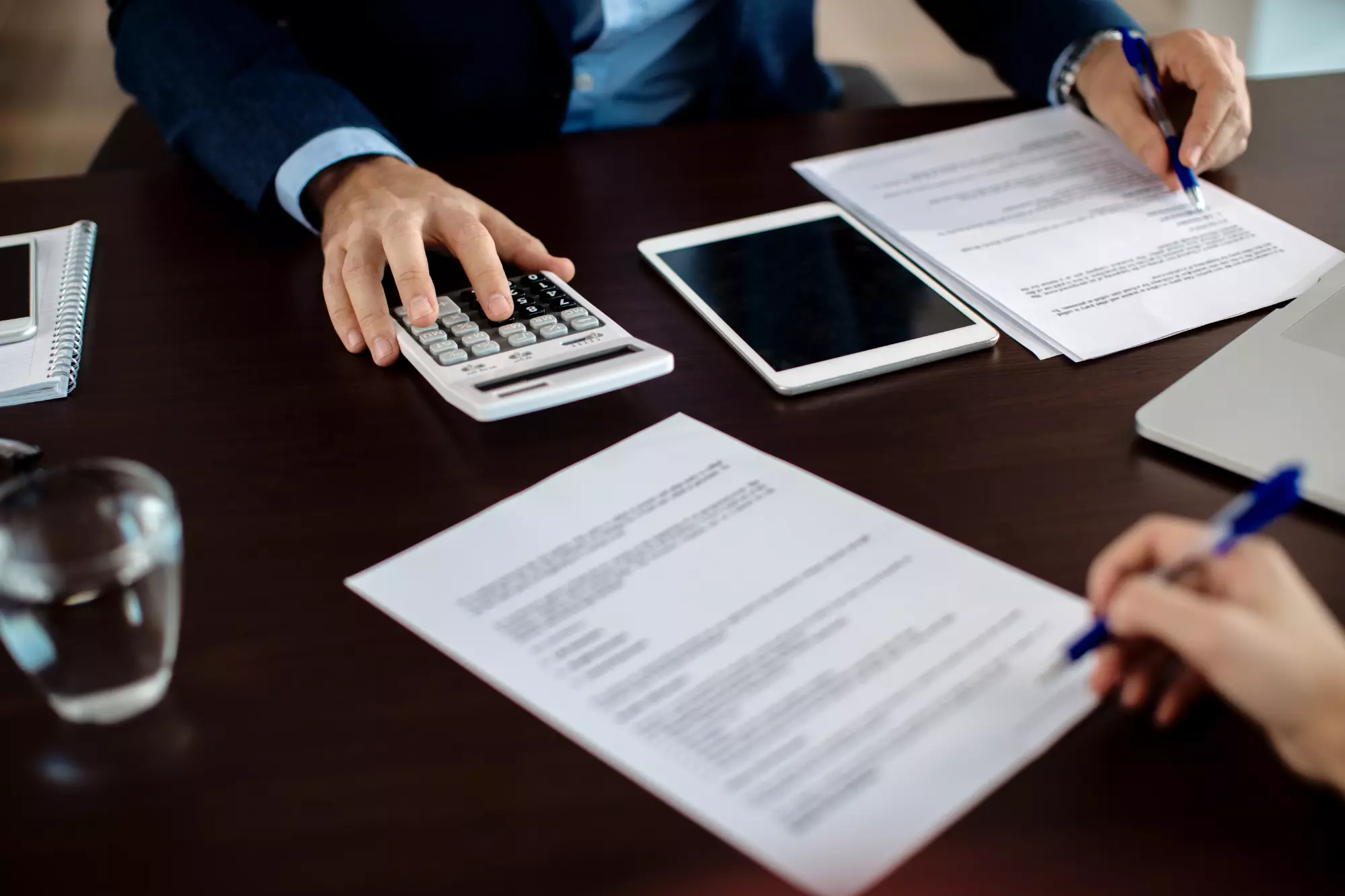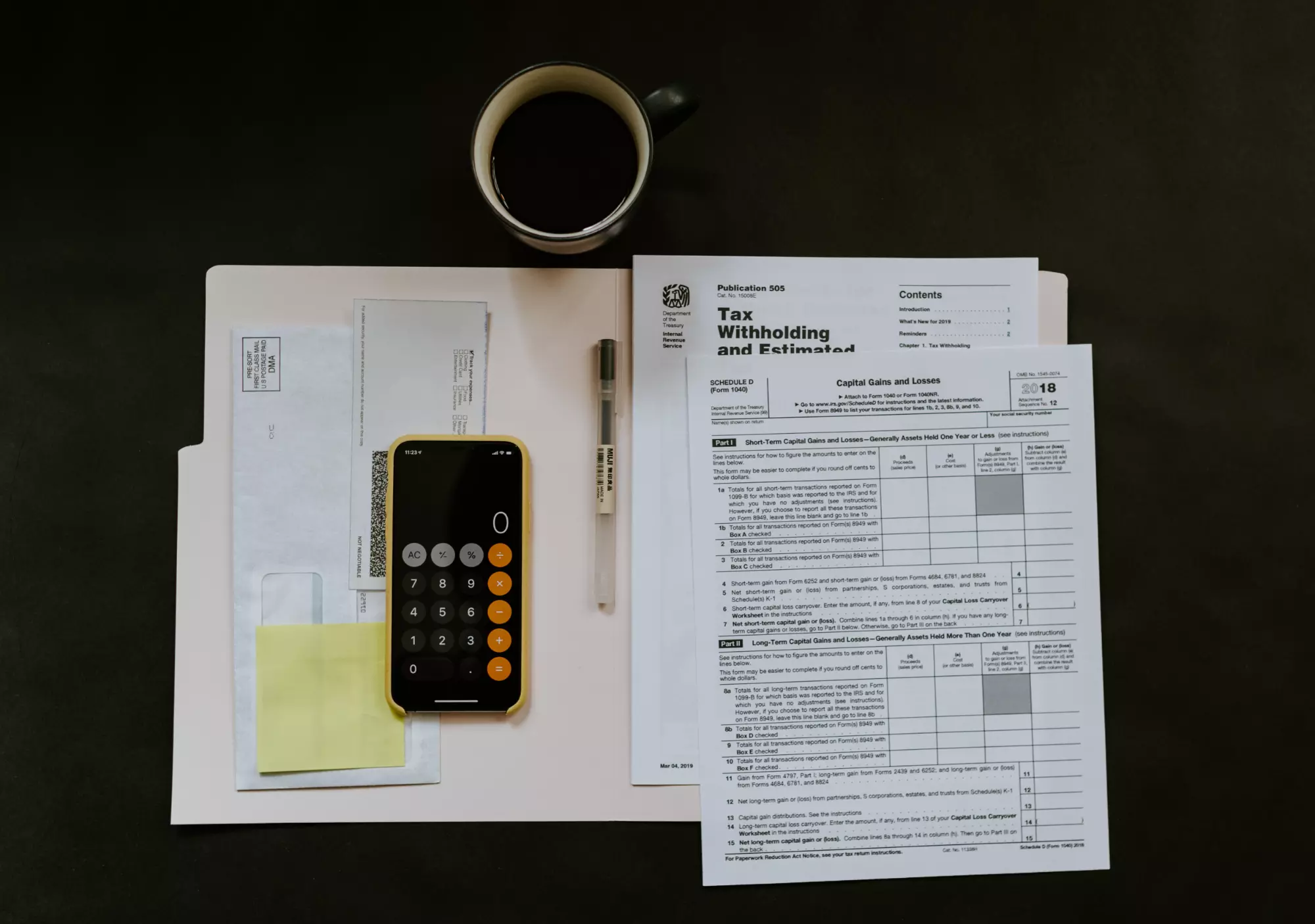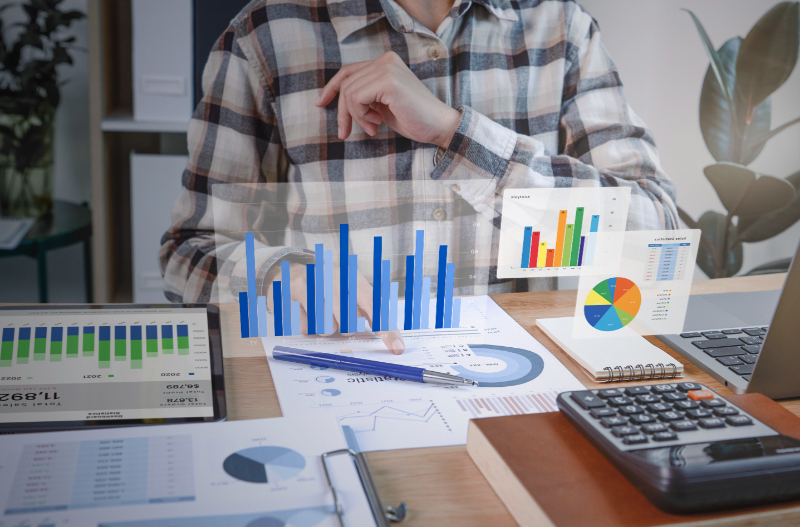This article asks: What does Tax Returns Preparation Include? Madison Business Services Ltd provides tax accountant services throughout Cheadle Hulme, Manchester, Cheshire. We look at the main types of tax return and What you need to do to complete a tax return.
What are the main types of tax returns?
Tax returns strike fear into the hearts of some taxpayers and business owners, especially if they are in charge of tax preparation.
Filing your returns is incredibly easy; you can just submit them online to HMRC. However, the nightmare is collating your taxes and the other information and other documents required and preparing them for submission.
Of course, you can always hire a tax advisor, tax preparer or accountant with professional credentials to help. Still, if you're set on tax preparation and filing your own taxes and tax returns, it can be helpful to know the different types of tax returns.
VAT Tax Returns
If you hire a bookkeeper for your new business, they will likely handle your VAT tax returns throughout the year.
It's their job to keep track of the VAT you collect from payments made to your business and offset this against the VAT you pay for purchases or services you pay for.
They will then combine these, prepare the VAT tax return, and submit it to HMRC. Whatever taxes you are due to pay will be paid once the report has been filed.
Business Income Tax
Your business income tax return is calculated from your business's profits throughout the tax year. Therefore, the more successful your business, and the more profits you make, the more tax you will pay.
However, a major part of accounting is tax efficiency - essentially ensuring that companies aren't paying more than necessary to HMRC, allowing them to save more money. Reducing your tax burden is a very difficult thing to achieve.
You should always seek professional tax advice and assistance from qualified accountants or tax preparers, as any discrepancies when you prepare tax returns for your business can lead to significant penalties.
Employee Income Taxes
Whenever you pay your employees, you must ensure they pay their share of income tax out of their wages.
When compiling your individual tax returns for HMRC, you need to state how much you have paid your employees and how much tax you have withheld. HMRC will then tell you when you need to hand over that tax to them.

Modern Tax Filing
Thankfully, we're no longer in the days when tax returns and personal property taxes had to be filled out on physical paper tax forms.
You can compile your taxes with accounting software, which makes things simpler for your tax preparer, accountant or bookkeeper, and submit your returns to HMRC online, making everything much easier.
Modern tax software can even estimate your taxes owed since it can record your bank statements and all the money going in and out of your business, and generate reports to finalise your tax returns. Finally, you can generally pay your tax bill online to HMRC.
Do I need to fill in a Self-Assessment tax return?
You only need to file a self-assessment tax return if:
- Your income from self-employment is more than £1,000 before removing any qualifying tax relief or deductions.
- You earn more than £2,500 in untaxed income, such as commission fees or tips.
- Your other income from investments or savings is more than £10,000 before tax.
- Your income from rental properties is more than £2,500. If your rental income is between £1,000 and £2,500, contact HMRC.
- You have sold assets, such as shares or a second home, and must pay Capital Gains Tax on the profits.
- You are the director of a company unless it is a charity or other non-profit organisation.
- You live abroad but have a UK income, or you take your income from abroad and pay tax on it in the UK.
- You will earn over £50,000 through the 2022/23 tax year and pay pension contributions. You may also have to complete a tax self-assessment to claim any tax relief you are eligible for.
- Your gross income is over £100,000.Your or your partner's income is over £50,000 while claiming Child Benefits.
- You are the trustee of a registered pension scheme or financial trust. Your State Pension is your only source of income and exceeds the Personal Allowance level of yearly income.
- You have been given a P800 from HMRC, saying you haven't paid enough tax in the previous tax year.
Other instances where you may want to submit a self-assessment tax return include making voluntary Class 2 National Insurance contributions. You may want to do this to make yourself eligible for State Pension benefits.
If you are employed by a company or business and make your tax contributions through the PAYE system (Pay As You Earn) payment plan, you won't need to submit a self-assessment tax return to HMRC unless you earn over £100,000 throughout the tax year.

What are the Self-Assessment deadlines?
For those unfamiliar with tax deadlines, you should know that the tax year is different to the regular calendar year.
You submit your tax returns as per the tax year, and usually in arrears. For example, the 2022/23 tax year runs from the 6th of April 2022 until the 5th of April 2023. If you must submit your self-assessment tax return during this tax year, you must:
- Register yourself for a self-assessment tax by the 5th of October 2023 if you've never registered or submitted a self-assessment tax return before.
- Submit your finished self-assessment tax return by midnight on the 31st of October 2023 if you choose to submit a physical paper tax return.
- If you file online, submit your completed self-assessment tax return by midnight on the 31st of January 2024.
- Pay all the tax you owe to HMRC by midnight on the 31st of January 2024.
If you miss any of these deadlines when compiling and submitting your self-assessment tax returns, you will be charged a fixed fee with interest on any late payments.
What do I need to do to complete a tax return?
When completing your self-assessment tax return, remember that it is a legal document and requires the utmost care and attention to detail when filling it out.
The tax documents should contain the details of all the income your receive throughout the tax year, regardless of how small that income might be (unless it is under £1) or if the tax has been deducted from the source.
To complete your self-assessment tax return appropriately, you have to complete the following steps:
- Ensure HMRC knows you are liable for tax during a specific tax year by at least the 5th of October after the current tax year has finished.
- Provide identification information for your domicile position for the tax year.
- Show your residency for the tax year in question, which you must do by following the rules of the Statutory Residence Test.
- Determine whether or not a remittance basis applies automatically to your foreign income or gains if you are non-domiciled in the UK and whether you wish to make a claim on this automatic remittance.
- If you want to claim this automatic remittance basis, check first whether any double taxation agreements provide reinstatement of your UK Personal Tax Allowances for your current domicile.
- If you want to file on an arising basis, ensure you have the appropriate details for your global income and gains.
- Research the right exchange rates for the foreign income or gains you reserve to convert them to pounds sterling (£). You can find the appropriate tax laws and exchange rates easily on GOV.UK
- Determine whether the double taxation agreement with your domicile's government allows an exemption from UK taxation on any relevant foreign income sources, dividend income, or charitable contributions or at least provides credits for any overseas tax you pay.
- If your domicile does not have a double taxation agreement, determine whether there is any unilateral relief in the UK for any overseas tax you pay.

Why Choose Tax Return Preparation?
Most business owners, self-employed people, sole traders and independent contractors will lament the need to prepare and submit their own tax returns. After all, it's a famously complex and time-consuming process.
However, with a professional tax advisor or tax accountant to hand, you can help make things a lot easier for yourself. These tax professionals can handle much of the hard work on your behalf, saving you the headache.
Not only with a tax accountant or tax preparer make things easier for you, but it also means you don't have to worry about any mistakes, late payments or inaccurate information on your tax returns that otherwise would incur significant penalties and fines.
Knowing your tax returns will be completed correctly in processional hands provides great peace of mind. Most tax accountants and firms can help with different annual tax returns, both paper and digital copies, including:
SA100 for individual tax returns
SA800 for partnerships
SA900 for trusts or estates
Get In Touch With our Tax Accountant Today
Are you looking for advice on account preparation in Cheadle Hulme and the surrounding areas of Manchester and Cheshire?
Follow the link below for professional accounting near you.

